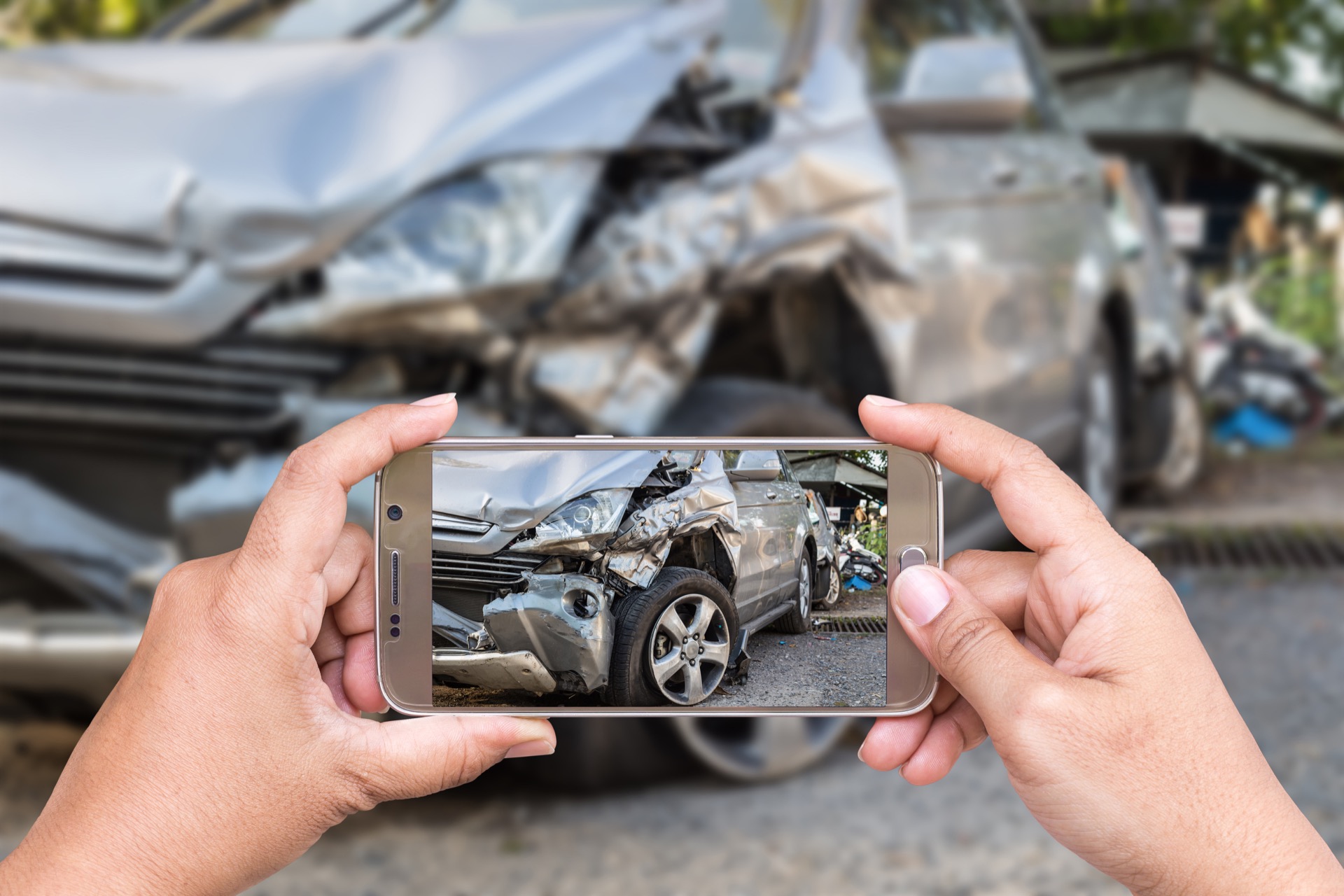Catastrophic injuries change lives in an instant. These injuries are severe, often permanent, and bring financial, physical, and emotional challenges. Victims and their families can face high medical costs, ongoing treatments, and loss of income.
Understanding your legal rights is essential to securing the resources you need for recovery.
Catastrophic injury cases are different from other personal injury claims. The stakes are higher because these injuries often result in life-altering disabilities or long-term medical needs.
Whether caused by car accidents, workplace incidents, or medical malpractice, catastrophic injuries demand careful attention and action. Pursuing a compensation claim can be overwhelming without legal guidance.
Florida laws protect victims from bearing the total burden of someone else’s negligence. Securing fair compensation requires knowing what steps to take and what evidence to gather. Only a Miami catastrophic injury lawyer has the experience you need.

Why Choose Englander Peebles for Miami Catastrophic Injury Cases
Englander Peebles provides strong legal representation for victims of catastrophic injuries. Their team focuses on obtaining fair compensation, allowing clients to focus on rebuilding their lives.
Compassionate advocacy
Catastrophic injuries affect not only the victim but also their family. Englander Peebles takes time to understand each client’s situation, tailoring strategies to fit specific needs. They work to ease the legal process while providing supportive client care.
Extensive knowledge of Florida injury law
Florida has unique statutes and regulations governing personal injury claims. Englander Peebles understands these legal frameworks well to ensure every case is handled properly. From filing deadlines to damage caps, they manage essential legal details.
Clear, open communication
Trust is built on transparency. Englander Peebles informs clients throughout their cases, ensuring they understand every step of the process. They are always available to answer questions and address concerns promptly.
Proven record in injury cases
Fighting for the maximum possible compensation is a priority. Englander Peebles has successfully handled numerous catastrophic injury claims, working tirelessly to achieve favorable outcomes for injured clients.
What Is a Catastrophic Injury?
A catastrophic injury causes lasting or permanent damage and significantly affects quality of life. Unlike minor injuries, these are often life-changing, requiring ongoing care and rehabilitation. Examples of catastrophic injuries include serious brain damage, spinal cord injuries, and severe burns.
These injuries can prevent victims from working or performing daily activities. Many require assistive devices, therapy, or 24-hour care. Legal claims for compensation commonly account for both immediate costs and future losses resulting from the injury.
Common Causes of Catastrophic Injuries

Catastrophic injuries can happen in many ways. These are some of the most common causes:
- Motor vehicle accidents
High-impact collisions involving cars, motorcycles, or trucks often result in catastrophic injuries like traumatic brain injuries (TBIs) or spinal cord damage. - Workplace accidents
Construction site falls, defective equipment and chemical exposure can lead to life-changing injuries. Workers in dangerous industries face heightened risks of serious harm. - Medical malpractice
Errors in surgeries, delayed diagnoses, or improper treatments can leave patients with catastrophic conditions. - Slips and falls
Falls from significant heights or on hazardous surfaces often cause permanent injuries, especially among the elderly. - Violent crime
Stabbings, shootings, or assaults often result in physical and emotional trauma that requires long-term care.
Understanding the cause of an injury is key to establishing liability.
Florida Laws Governing Catastrophic Injury Claims
Florida personal injury law holds negligent parties accountable for injuries caused by their actions. Victims of catastrophic injuries may pursue claims for damages under several legal statutes.
Comparative Negligence in Florida
Florida follows a comparative negligence rule. This means compensation can be reduced if the injured party is found partially at fault. For example, if someone is 20% responsible for an accident, they can still recover damages but will receive 80% of the total award.
Statute of Limitations
In Florida, there are strict deadlines for filing personal injury claims. Victims typically have four years from the date of the injury to file. If the injury was caused by medical malpractice, this window shortens to two years.
Missing these deadlines can mean losing the right to recover compensation.
Economic and Non-Economic Damages
Florida laws allow for two main types of damages in catastrophic injury cases:
- Economic damages
These cover quantifiable losses, such as medical bills, lost wages, and future care expenses. - Non-economic damages
These compensate for subjective losses, including pain, suffering, and loss of enjoyment of life.
Calculating damages accurately requires detailed documentation and legal insight.
Proving Negligence in Catastrophic Injury Cases
Negligence lies at the core of most catastrophic injury cases. Proving negligence involves demonstrating four key elements:
- Duty of care
The party responsible for the injury must have owed a duty of care to the victim. For example, drivers must operate their vehicles responsibly, and employers must provide safe work environments. - Breach of duty
It must be proven that this duty of care was violated. Breaches often include reckless actions, neglect, or intentional conduct. - Causation
Evidence must show a direct link between the breach of duty and the injury sustained. - Damages
Finally, the victim’s losses resulting from the injury must be quantified.
Collecting strong evidence, such as eyewitness accounts, medical reports, and surveillance footage, significantly proves these elements.
Types of Catastrophic Injuries
Catastrophic injuries vary widely. Here are some of the most common types:
- Traumatic Brain Injuries (TBIs)
TBIs often occur in car accidents, falls, or sports-related incidents. They can cause memory loss, cognitive disabilities, or motor skill impairment. - Spinal Cord Injuries
Damage to the spinal cord can cause partial or total paralysis. Treating spinal injuries often involves surgeries, therapy, and the use of assistive devices. - Severe Burns
Burn injuries are particularly painful and may leave victims with permanent scarring or disfigurement. They also involve high risks of infection and require extended hospital stays. - Amputations
Accidents involving machinery or severe trauma can result in the loss of limbs. Prosthetics and long-term physical therapy are often needed. - Organ Damage
Internal injuries caused by blunt force trauma or medical errors can lead to lasting organ dysfunction.
Each injury requires individualized treatment plans, increasing the complexity of a legal case.
Long-Term Costs of Catastrophic Injuries
The financial burden of a catastrophic injury extends far beyond initial medical bills. These are common long-term costs victims face:
- Rehabilitation
Physical therapy, occupational therapy, and speech therapy often continue for years. - Future Surgeries
Additional procedures may be required to address complications or improve quality of life. - Home Modifications
Wheelchair ramps, medical equipment, and accessible bathrooms can cost tens of thousands of dollars. - Caregiver Expenses
Hiring professional caregivers or requiring family members to care can significantly add to financial strain.
Pursuing legal compensation ensures these expenses do not fall entirely on the victim.
How Catastrophic Injuries Affect Families
Family members of catastrophic injury victims often bear a significant burden. This includes providing daily care, managing finances, or adapting to new responsibilities.
Emotional strain can also take a toll as families watch their loved ones face pain and limited mobility. Legal claims often address families’ financial challenges, offering them resources to adjust.
Steps to Take After a Catastrophic Injury
Recovering from a catastrophic injury involves more than immediate medical care. Once the initial steps are handled, the following days and weeks are critical for building a strong foundation for long-term recovery and any potential legal claims.
These actionable steps can help you stay organized and protect your rights.
Keep detailed medical records
Track all doctor visits, therapies, medications, and procedures. Save receipts, bills, and records of appointments. Create a folder or digital file to store these documents. Medical records will be crucial for showing the extent of your injuries, ongoing treatment needs, and associated expenses.
Attend follow-up appointments
Follow through with all scheduled visits to doctors, specialists, or therapists. Skipping appointments might slow your recovery or weaken your legal claim by suggesting that your injuries are not as serious as they are. Consistent treatment demonstrates your commitment to getting better.
Monitor changes in your condition
Pay attention to any changes, improvements, or setbacks in your health. Keep a written journal or record of how your injury affects your daily activities, pain levels, and emotional state. This information can provide evidence of the challenges you face as a result of your injury.
Communicate with your medical team
Ask questions and stay informed about your treatment plan. Make sure you understand the timeline for recovery, potential complications, and additional care you might need. Clear communication helps you advocate for your health more effectively.
Start tracking financial losses
Begin tracking all costs related to the injury, including lost wages if you are unable to work. Document other expenses like transportation to medical appointments, home modifications, and costs for assistive devices. These figures help calculate the full compensation you may need.
Organize any correspondence about the incident
Save all emails, letters, or other communications from insurance companies, employers, or third parties related to the injury. Keep detailed notes of phone discussions, including dates, times, and what was said. Maintaining a clear record can prevent disputes later.
Research rehabilitation options
Look into rehabilitation programs or facilities suited to your injury and specific recovery goals. Physical therapy, occupational therapy, and counseling services might support your progress.
Ensuring access to the right care is an important part of your overall recovery plan.
Assess the need for home adjustments
Evaluate whether modifications to your home are necessary for your comfort or mobility. Examples include installing wheelchair ramps, grab bars, or adjusting the layout of living spaces. Acting early can help you avoid delays in creating a safe and accessible environment.
Limit discussions about the injury
Be cautious about discussing details of the injury or accident with anyone other than your legal team and medical professionals. Refrain from posting about it on social media, as these statements might be used against you later.
Stay Consistent with Legal Preparation
If you’ve already consulted with legal counsel, keep in regular contact and provide any updates about your recovery. Respond promptly to requests for documents or information to ensure your claim progresses without interruptions.
These steps help you stay proactive during the critical weeks after a catastrophic injury. Consistent effort can improve your recovery and strengthen your case for fair compensation.
Contact Englander Peebles for Miami Catastrophic Injury Claims
Catastrophic injuries demand thorough legal representation. If you or someone you love has suffered, contact Englander Peebles to discuss your claim.
Call (954) 226-9134 to schedule a consultation and take your first step toward financial recovery and justice.


